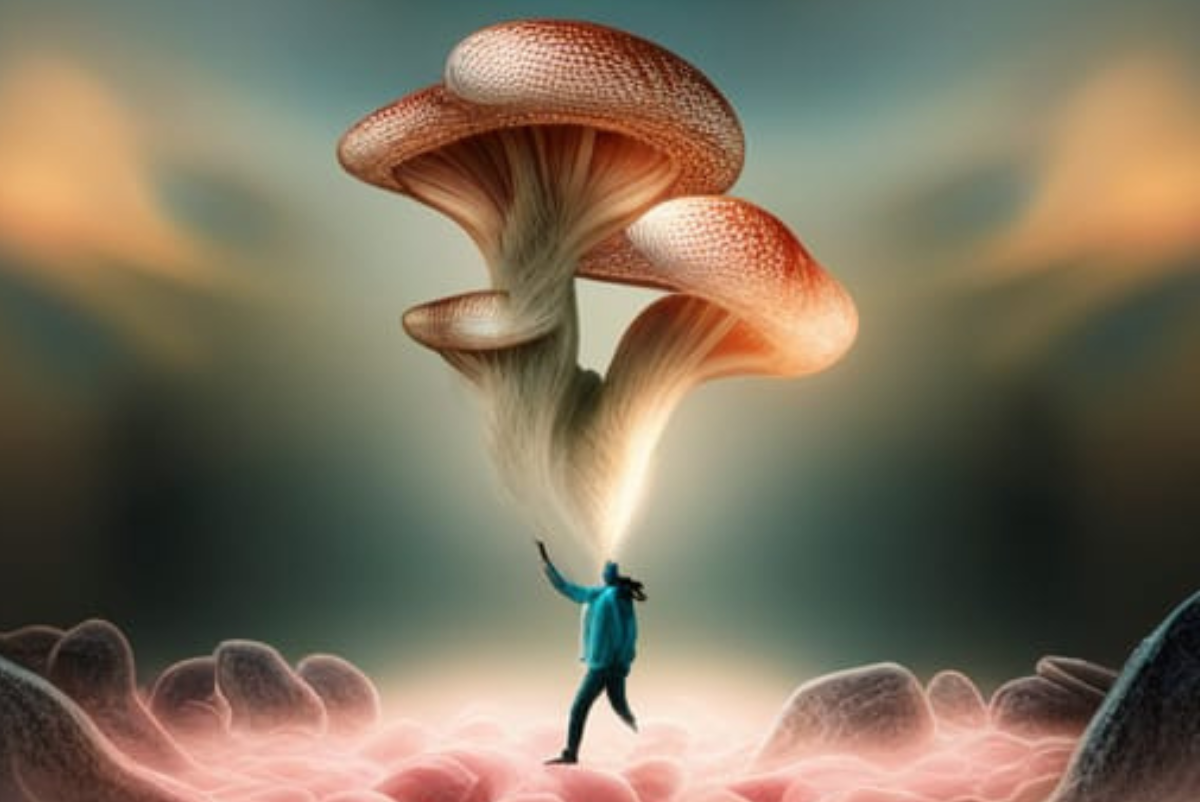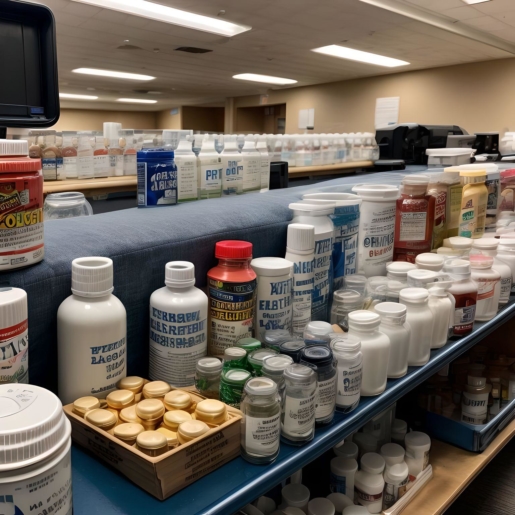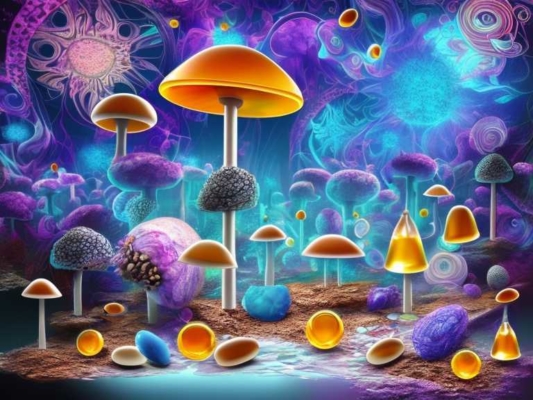
In recent developments highlighted in our psychedelic news roundup, the landscape of psychedelic research is unveiling intriguing facets. Massachusetts legislators are probing into the therapeutic potential of plant-based psychedelics, and Kentucky is making strides with its Ibogaine research, marking a shift in the perception of these once-stigmatized substances. Meanwhile, emerging scientific studies illuminate the possible pain-relieving attributes of these compounds and the reconsideration of Ketamine’s application in pediatric care. Let’s dive into this week’s news.
Magic in the Mushroom: Groundbreaking Study Reveals Lasting Mental Wellness Benefits of Psilocybin
Recently, in a significant piece of psychedelic news, Unlimited Sciences unveiled research outcomes regarding an examination of the health impact of psilocybin, popularly recognized as ‘magic mushrooms.’ The research, now featured in the Frontiers in Psychiatry journal, is the most extensive ongoing collection of data concerning natural psilocybin consumption so far. The findings suggest that one dose of psilocybin may have long-term positive effects on mental well-being. These conclusions align strongly with the expanding accumulation of evidence from clinical experiments, behavioral drug studies, and population health research, offering valuable insights into the renewed public fascination with traditional psychedelic substances.
Information was gathered by questioning 8,006 individuals across a span of 24 months. A sequence of six consecutive questionnaires, administered over multiple months, aimed to describe self-identified patterns of psilocybin consumption and perceived effects of the drug. The surveys also evaluated alterations in both physical and mental health, personality traits, overall well-being, and psychological function pre- and post-psilocybin usage. In contrast to clinical studies, these types of observational investigations monitor subjects in their natural settings, can be executed more swiftly with a larger set of participants, and are often viewed as a vital gauge for understanding the applicability of results in a clinical setting. See the official press release here.
About Unlimited Science
Unlimited Sciences operates as a nonprofit entity dedicated to psychedelic research. The organization leverages data-driven methodologies to offer societal benefits, enlighten public perception, and influence sensible policies and practices related to psychedelic substances.
Kentucky’s Bold Move: $42M Pitched for Pioneering Ibogaine Research in Opioid Battle
In Kentucky, on Friday, as part of the unfolding psychedelic news, the Opioid Abatement Advisory Commission listened to extensive remarks from a wide range of individuals. The commission plans to vote in mid-November on a proposal that aims to allocate at least $42 million from state funds for six years of ibogaine research, exploring its effectiveness in treating opioid use disorder, following two public hearings on the matter.
Funding for the initiative is expected to be sourced from Kentucky’s share of a 26-billion-dollar agreement reached with opioid producers and suppliers in February 2022. Of the $478 million allocated to the state, half was distributed to local authorities, and the remaining sum is overseen by the state’s Opioid Abatement Advisory Commission, which operates under the umbrella of the Attorney General’s Office.
Friday’s hearing was filled with passionate testimonials and advocates. Among those who spoke at the hearing were military veterans, mental health professionals, individuals who have undergone ibogaine treatment and their relatives, a retired basketball professional from the NBA, and a pair of past politicians, including Perry and Ben Chandler. Chandler, once a Democratic State Attorney General and five-time Congressman, currently directs the Foundation for a Healthy Kentucky. To watch these testimonials, you can access the recorded livestream here.
Bay State Buzz: Massachusetts Legislators Dive Deep into the Psychedelic Potential of Plant Medicine
Earlier this month, as the psychedelic news spotlight shined on Massachusetts, over 60 legislators and their aides participated in an exclusive session about the potential benefits of natural psychedelics. They were enlightened about the therapeutic effects of substances like psilocybin mushrooms on conditions such as depression, opioid dependency, and certain rare neurological disorders, including cluster headaches. The session was mainly spearheaded by psychotherapist Lieutenant Sarko Gergerian from the Winthrop Police Department and James Davis, who founded Bay Staters for Natural Medicine. They urged the legislators to consider the merits of S.1009 and H.1754, a bill titled “An Act Relative to Plant Medicine.”
Championed by Democrats Senator Jehlen and Representative Sabadosa, along with Republican Representative Nick Boldyga, this legislation seeks to permit adults to cultivate and distribute a limited quantity of psilocybin mushrooms without any monetary exchange. The overarching aim is to diminish the stigma associated with these substances and promote understanding of their potential mental health benefits.
Get the complete details of the bill in our coverage here.
Rethinking Ketamine: From Operating Rooms to Brain Injury Recovery in Kids
Since the 1970s, ketamine has been employed as a potent sedative but has rarely been used in pediatric cases involving traumatic brain injuries. This is due to longstanding beliefs that the drug could increase the pressure within the skull. Recent studies, however, suggest that ketamine may actually aid in the recovery of children with such injuries.
Every year, between 50,000 and 60,000 children are admitted to hospitals due to traumatic brain injuries. Could ketamine serve as an effective treatment for these young patients? In a recent research project, children ranging from one month to 16 years old were administered ketamine after sustaining brain injuries.
In the study, 18 ketamine doses were given during real episodes of elevated intracranial pressure. Overall, the researchers noted a reduction in that pressure. These results challenge the previous notions and are prompting further investigation.
In typical clinical settings, ketamine is most commonly used as an anesthetic for surgical procedures and as a sedative for minor interventions. It is also utilized for pain management, particularly in cases of chronic or severe pain that is unresponsive to other treatments.
Additionally, ketamine is increasingly being used in psychotherapy settings as an adjunct treatment for mental health conditions like depression and PTSD. Administered at lower doses, it’s believed to enhance the effectiveness of traditional psychotherapy by facilitating deeper emotional processing and potentially accelerating treatment outcomes.
Addressing prevalent misconceptions about Ketamine, we interviewed Christy Myeres, CEO and founder of Flow Integrative, for an in-depth podcast discussion on the subject. 🎙️Listen to the full podcast.
Psychedelics vs. Pain: How LSD, Psilocybin, and DMT Might Outshine Traditional Painkillers
Increasing evidence, highlighted in recent psychedelic news, indicates that psychedelics could potentially join the expanding roster of medical treatments for chronic pain.
Last month, the European Journal of Pain published a study which showed that conventional pain relievers were less effective than both high and low doses of well-known psychedelics such as LSD, psilocybin, DMT, and mescaline in a group of surveyed volunteers.
“Participants reported that full doses seem to achieve better perceived results in pain relief than microdosing, while microdosing’s effectiveness seems comparable to that of conventional medication according to survey participants,” the paper concluded.
Read the full article here.









